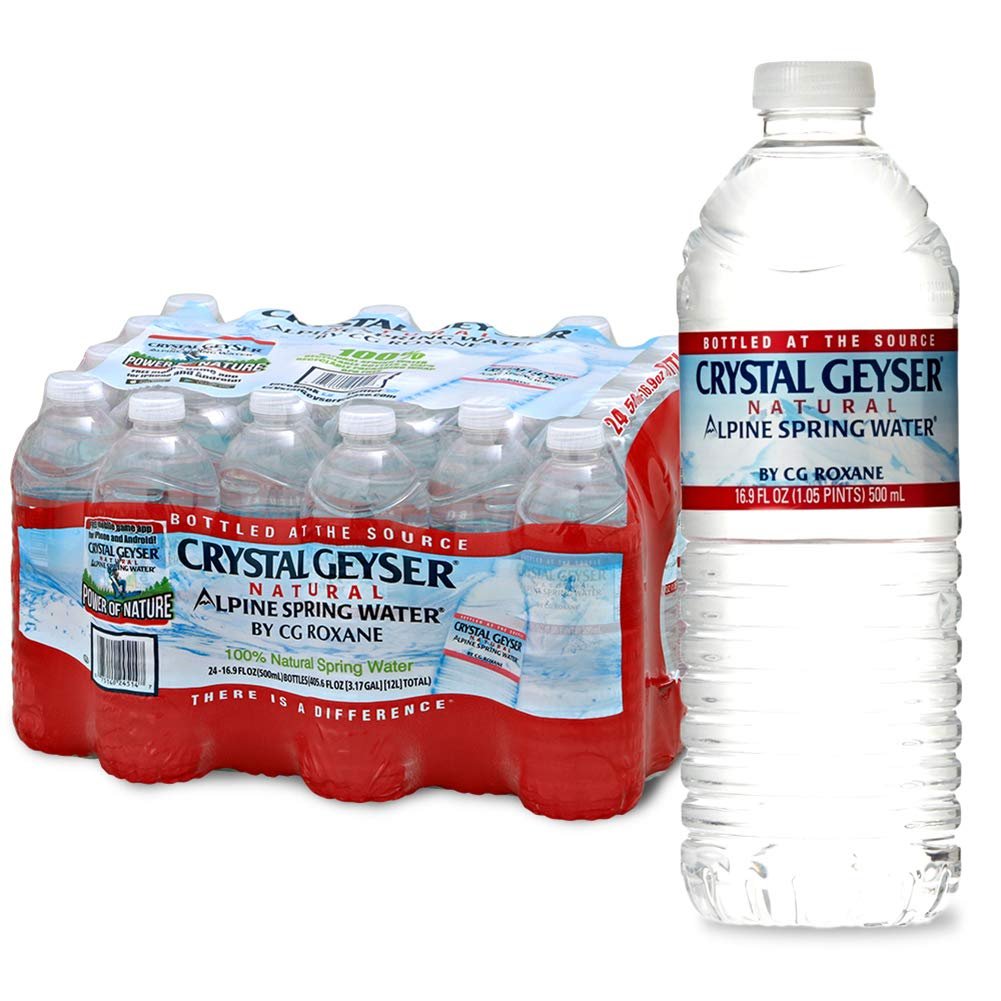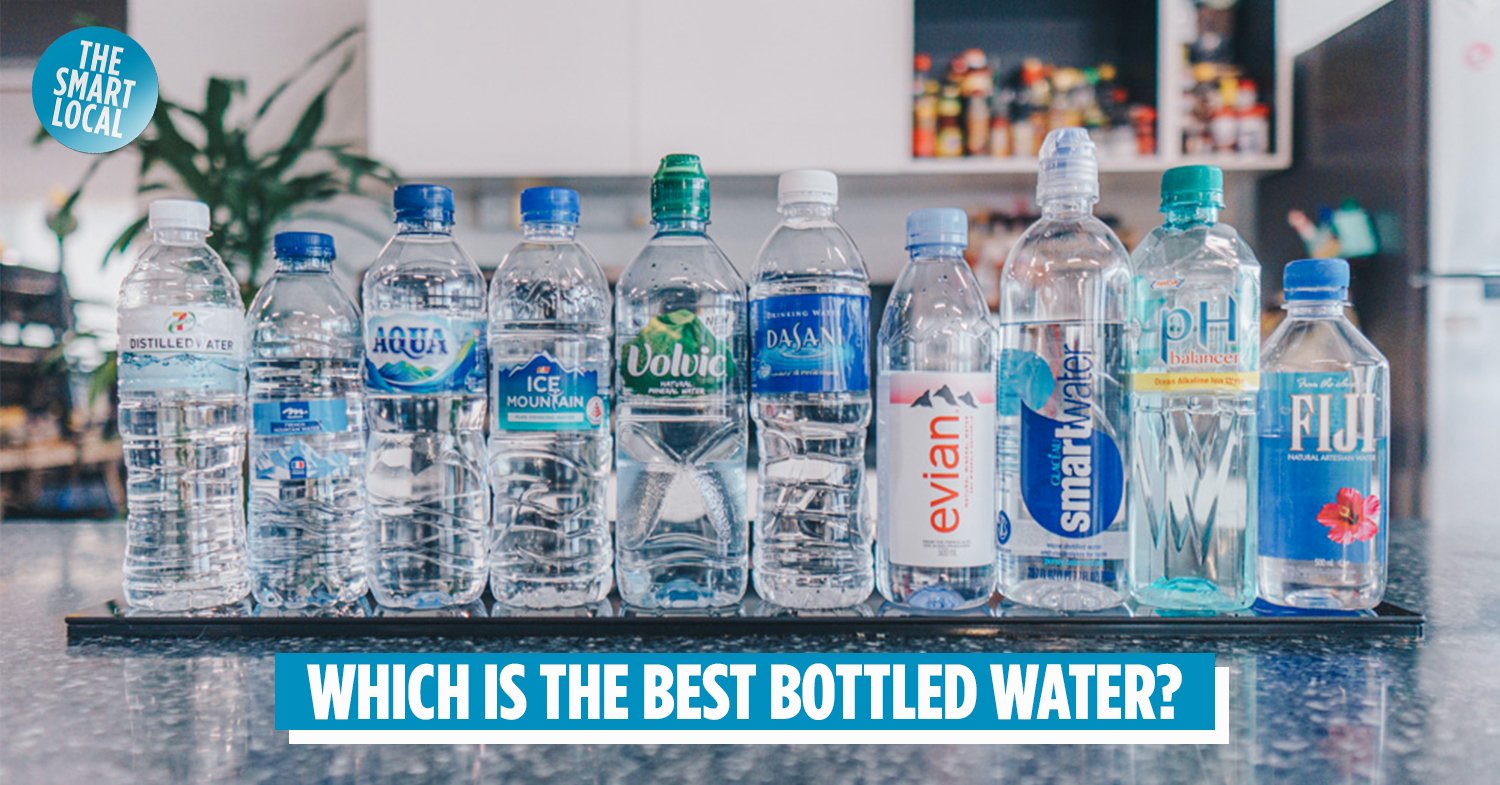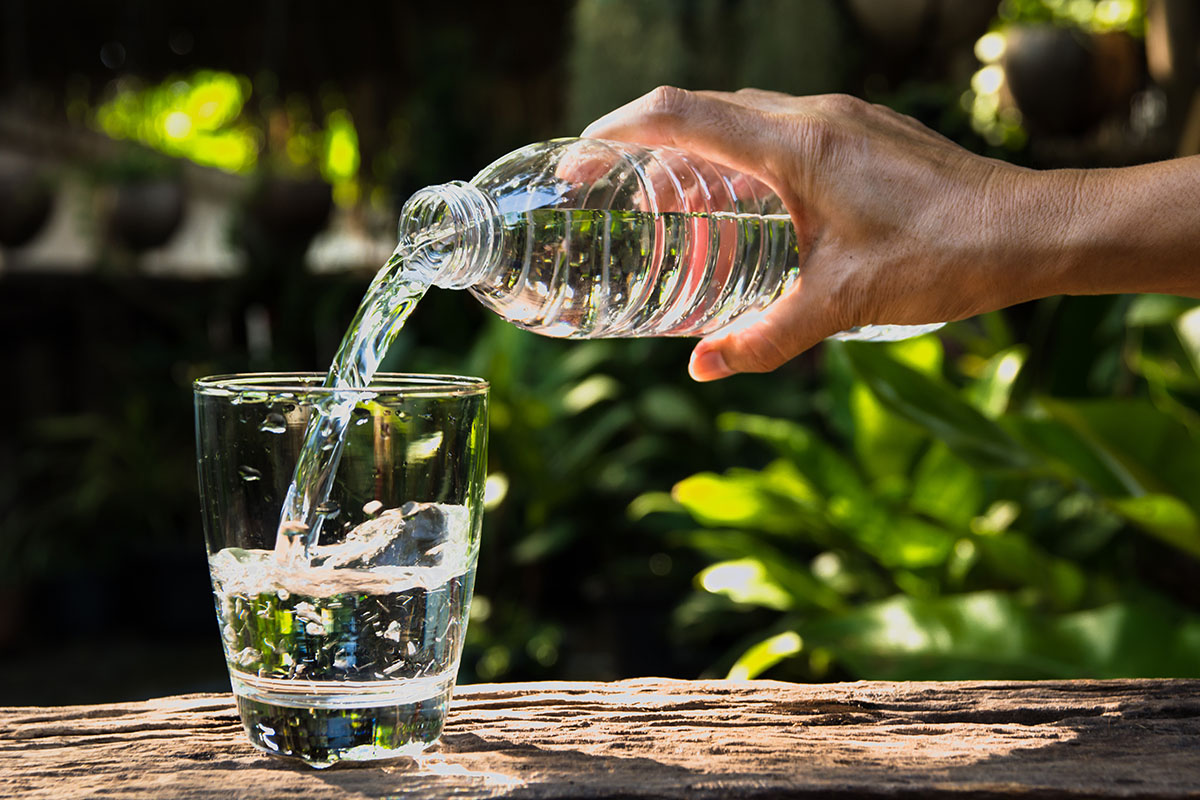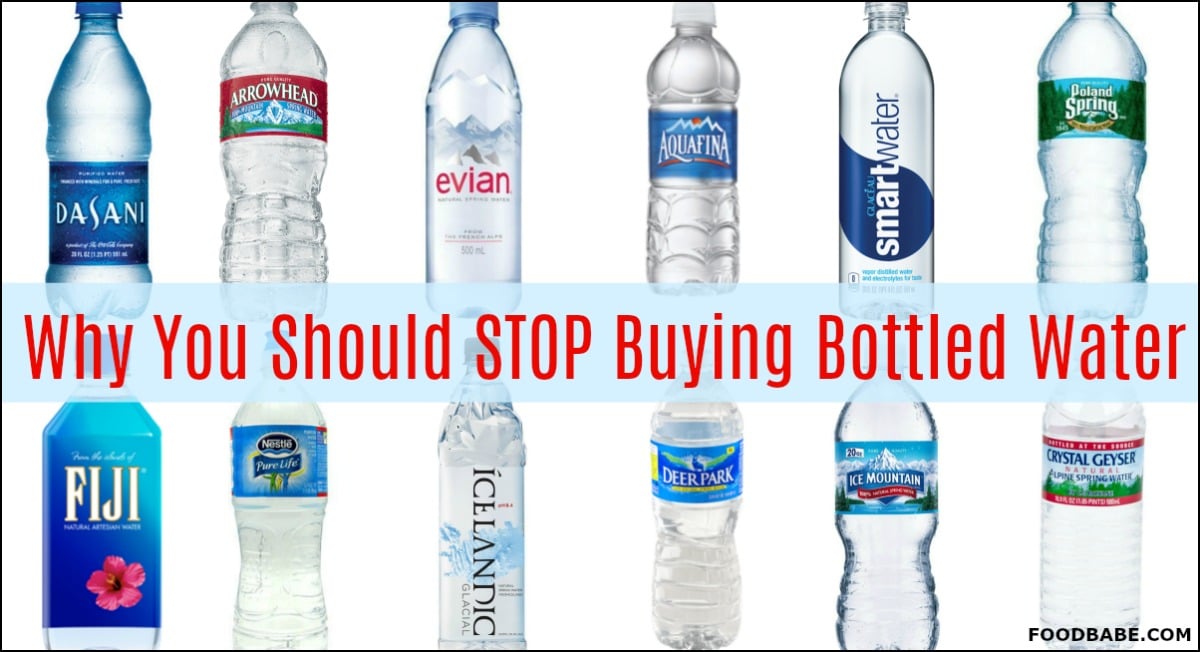Navigating The Waters: A Comprehensive Guide To Choosing The Best Bottled Water
Navigating the Waters: A Comprehensive Guide to Choosing the Best Bottled Water
Related Articles: Navigating the Waters: A Comprehensive Guide to Choosing the Best Bottled Water
Introduction
With great pleasure, we will explore the intriguing topic related to Navigating the Waters: A Comprehensive Guide to Choosing the Best Bottled Water. Let’s weave interesting information and offer fresh perspectives to the readers.
Table of Content
Navigating the Waters: A Comprehensive Guide to Choosing the Best Bottled Water

In a world where access to clean, safe drinking water is not a universal guarantee, bottled water has emerged as a ubiquitous commodity. But with an ever-expanding market offering a plethora of brands, choosing the "best" can feel like navigating a vast, uncharted ocean. This comprehensive guide aims to shed light on the factors that influence water quality, provide insights into the leading brands, and equip consumers with the knowledge to make informed decisions.
Understanding Water Quality: The Foundation of Choice
The quality of bottled water is paramount, and it is determined by a combination of factors:
- Source: The origin of the water is a crucial starting point. Some brands source their water from pristine springs, while others rely on municipal water sources, which undergo purification processes.
- Treatment: Bottled water undergoes various treatment methods to remove impurities and enhance its taste. Common methods include filtration, reverse osmosis, and UV light treatment.
- Mineral Content: The presence of minerals like calcium, magnesium, and potassium can influence the taste and potential health benefits of water. Some brands prioritize minimal mineral content for a clean taste, while others promote the inclusion of minerals for added health benefits.
- pH Level: The pH level indicates the acidity or alkalinity of water. A neutral pH level of 7 is considered ideal, while slightly alkaline water (pH above 7) is often promoted for its potential health benefits.
- Contaminants: The presence of contaminants like bacteria, viruses, pesticides, and heavy metals is strictly regulated by government agencies. Reputable brands undergo rigorous testing to ensure the absence of harmful contaminants.
Leading Brands: A Comparative Analysis
While the "best" brand is ultimately subjective, certain brands consistently stand out for their quality, taste, and commitment to sustainability:
1. Fiji: Renowned for its source in the Fijian Islands, Fiji water is sourced from an artesian aquifer, known for its purity and naturally occurring minerals. The distinctive taste and iconic bottle design have contributed to its widespread popularity. However, the brand’s carbon footprint associated with transportation has been a subject of criticism.
2. Evian: Sourced from the French Alps, Evian is a popular choice for its smooth, refreshing taste. The brand emphasizes its naturally occurring minerals and the rigorous quality control measures employed. However, the plastic bottles used for packaging have raised concerns about environmental impact.
3. Voss: This Norwegian brand is known for its minimalist design and commitment to sustainability. Voss sources its water from an aquifer in Norway, known for its purity and low mineral content. The brand offers a range of bottle sizes, including larger formats for bulk purchases.
4. Perrier: This French brand is synonymous with its distinctive bubbly texture and unique mineral content. Perrier is naturally carbonated and contains high levels of calcium and magnesium. Its distinctive taste and iconic bottle design have made it a popular choice for its unique character.
5. Aqua Panna: Another Italian brand, Aqua Panna, is known for its smooth, slightly sweet taste. It is sourced from the Tuscan region and contains naturally occurring minerals. The brand emphasizes its commitment to sustainability, using recycled materials for its bottles.
6. Essentia: This brand focuses on its alkaline pH level, which is marketed for its potential health benefits. Essentia water undergoes a proprietary ionization process to achieve a pH level of 9.5. While the health claims associated with alkaline water are still under debate, Essentia has gained popularity for its unique proposition.
7. Smartwater: This brand, owned by Coca-Cola, is known for its sleek design and focus on taste. Smartwater undergoes a triple-filtration process to achieve a clean, crisp taste. The brand also offers a variety of flavors, adding to its appeal.
8. Dasani: Also owned by Coca-Cola, Dasani is a popular choice for its affordability and widespread availability. The brand uses municipal water sources and purifies it through a multi-step process. Dasani also offers a variety of flavors and packaging options.
Beyond Brand Names: Considerations for Informed Choice
While brand names and marketing campaigns play a role in consumer preferences, making informed decisions requires a deeper understanding of the factors that influence water quality and personal needs:
- Taste: Personal taste preferences play a significant role in choosing bottled water. Some prefer a crisp, clean taste, while others enjoy a slightly mineral-rich flavor.
- Mineral Content: The mineral content of water can influence its taste and potential health benefits. Those seeking a clean taste may prefer water with minimal mineral content, while others may appreciate the presence of minerals like calcium and magnesium.
- pH Level: The pH level of water can influence its taste and potential health benefits. Some prefer slightly alkaline water for its purported benefits, while others find it unnecessary.
- Sustainability: The environmental impact of bottled water is a growing concern. Consumers can choose brands that prioritize sustainability by using recycled materials, reducing their carbon footprint, and supporting responsible sourcing practices.
- Cost: The cost of bottled water varies depending on the brand, size, and packaging. Consumers can choose brands that fit their budget and consumption needs.
Frequently Asked Questions
1. Is bottled water safe?
Bottled water is generally safe to drink when sourced from reputable brands that adhere to strict quality control measures. However, it is crucial to choose brands that undergo rigorous testing and adhere to government regulations.
2. Is bottled water better than tap water?
The safety and quality of tap water vary widely depending on the location and infrastructure. In many areas, tap water is perfectly safe and often undergoes rigorous treatment processes. Bottled water can be a convenient alternative, but it is not necessarily superior in terms of safety or quality.
3. Is bottled water good for you?
Bottled water is a healthy alternative to sugary drinks and can contribute to hydration. However, it is important to choose brands with minimal mineral content to avoid excessive intake of certain minerals.
4. Is bottled water bad for the environment?
The environmental impact of bottled water is a significant concern. The production, transportation, and disposal of plastic bottles contribute to pollution and greenhouse gas emissions. Consumers can choose brands that prioritize sustainability and reduce their reliance on single-use plastic bottles.
Tips for Choosing the Best Bottled Water
- Read the label: Pay attention to the source of the water, treatment methods, mineral content, pH level, and any certifications or awards.
- Consider your taste preferences: Choose a brand that aligns with your preferred taste profile, whether you prefer a clean, crisp taste or a slightly mineral-rich flavor.
- Prioritize sustainability: Choose brands that use recycled materials, reduce their carbon footprint, and support responsible sourcing practices.
- Compare prices: Consider the cost per liter and choose a brand that fits your budget and consumption needs.
Conclusion
Choosing the "best" bottled water is a subjective decision influenced by individual preferences and priorities. By understanding the factors that influence water quality, researching reputable brands, and considering personal needs, consumers can make informed choices that prioritize safety, taste, sustainability, and affordability. Ultimately, the pursuit of the "best" bottled water is a journey towards responsible hydration, mindful consumption, and a commitment to environmental stewardship.








Closure
Thus, we hope this article has provided valuable insights into Navigating the Waters: A Comprehensive Guide to Choosing the Best Bottled Water. We appreciate your attention to our article. See you in our next article!
You may also like
Recent Posts
- Navigating The World Of Home Decor Software: A Comprehensive Guide
- The Power Of Visual Transformation: A Deep Dive Into Before And After Images
- The Art Of The Vase: Elevating Home Decor With Timeless Elegance
- Reclaiming Rustic Charm: The Enduring Appeal Of Barn Wood Home Decor
- Elevating Your Home: A Guide To Selecting The Perfect Paintings For Decor
- Reimagining The View: A New Era Of Interior Design
- Arcus Home Decor Inc
- Moradabad: A Legacy Of Artistic Craftsmanship In Home Decor
Leave a Reply